Celebrating Black History Month with Photographs by Alen MacWeeney
- Barbara Diener
- February 9, 2024
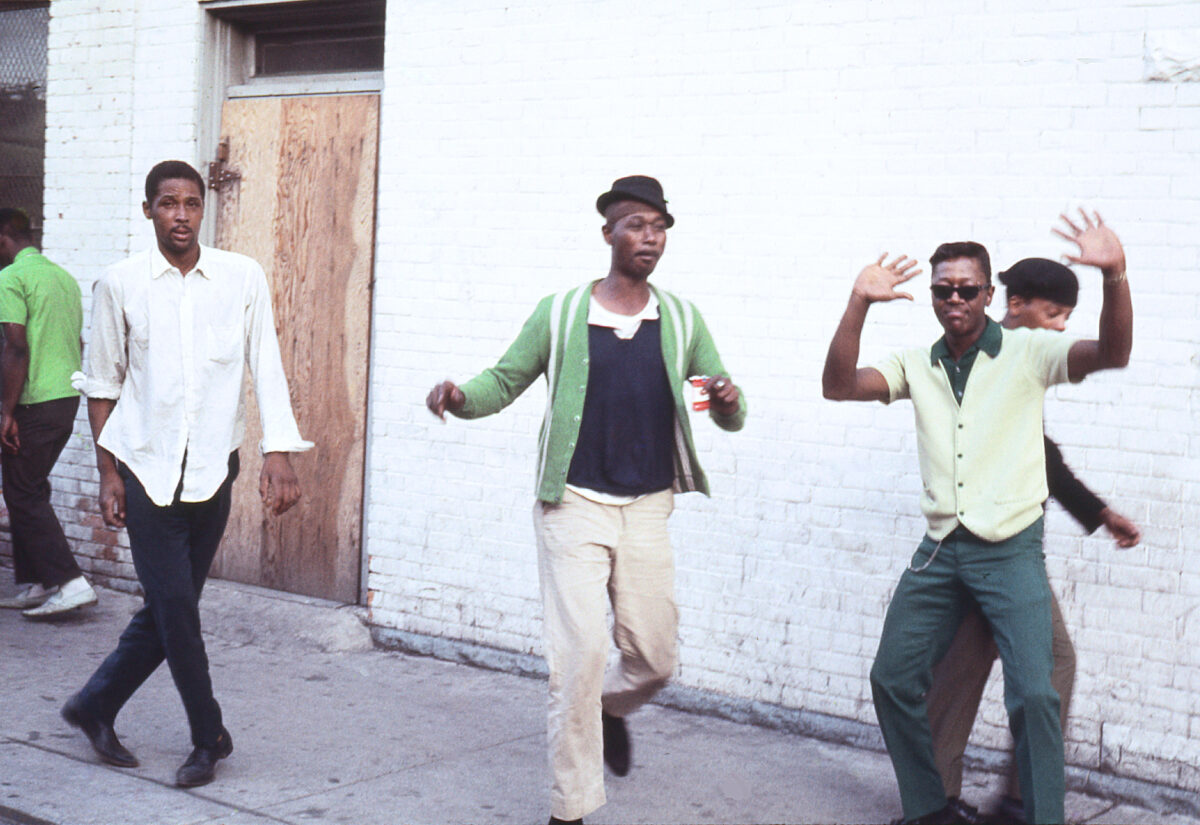
Honoring Black History
In honor of Black History Month—in North America observed in February—UCC Library’s Special Collections and Archives would like to highlight a group of photographs taken by photographer Alen MacWeeney in Detroit, Michigan in 1968. MacWeeney is an Irish born photographer, based in New York since the 1960s, who has photographed the Irish and American landscape and people extensively. He is best known for his work about Irish Travellers, rural life, Belfast in 1971, and the New York City subway. In 2019 UCC Library acquired the Alen MacWeeney Archive.
Black History Month, celebrated annually in North America during the month of February and in the UK and Ireland in October, is a time to recognise and honor the achievements, contributions, and history of African Americans and the African Diaspora.
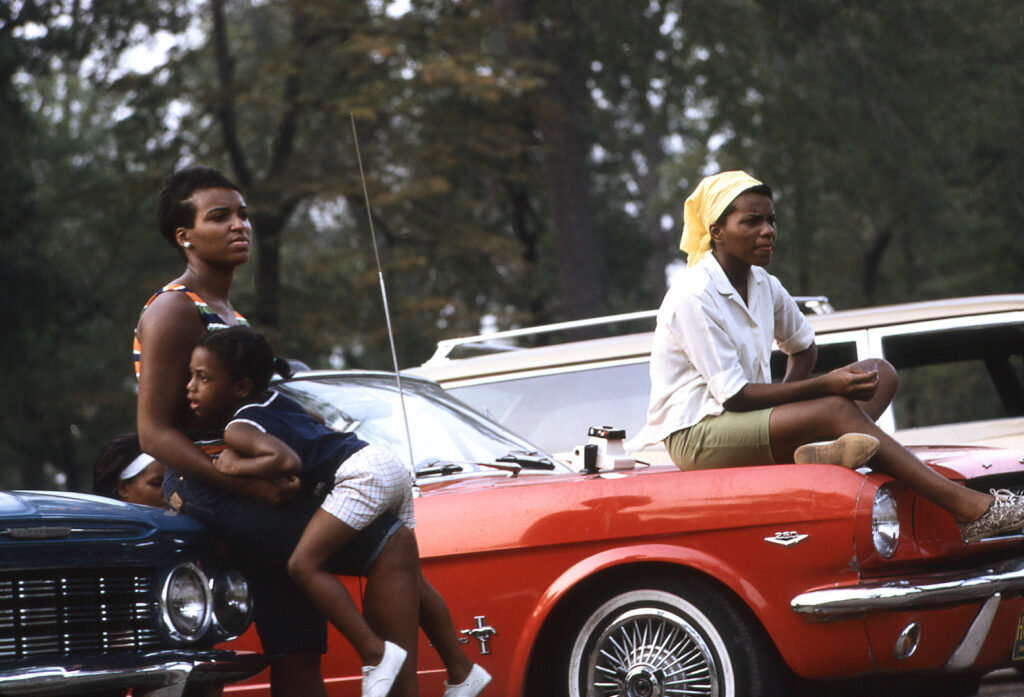
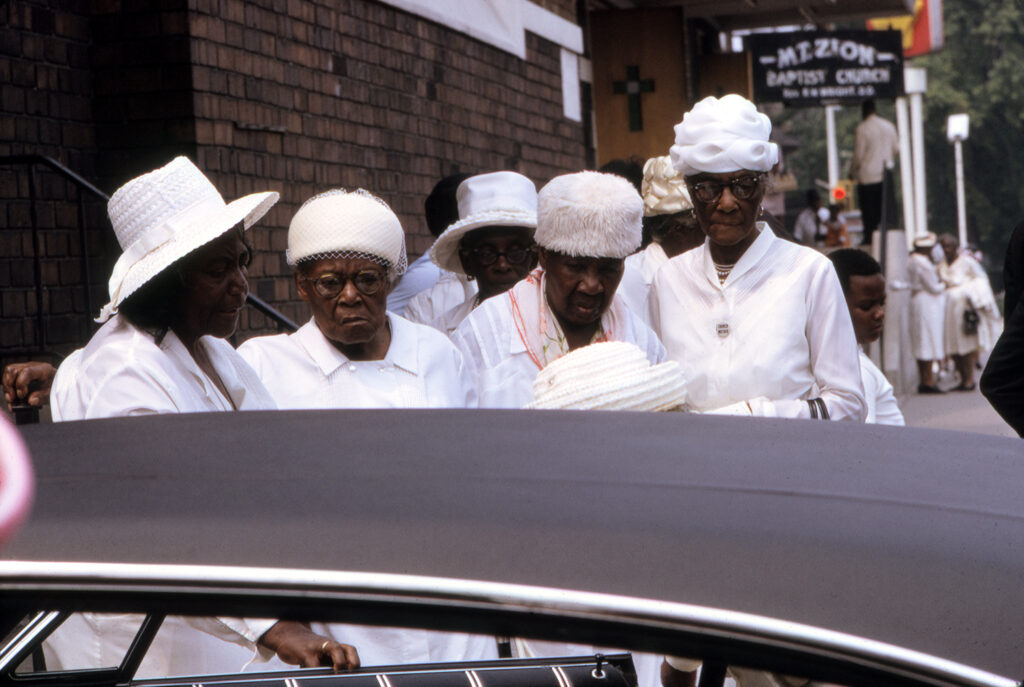
Above photographs by Alen MacWeeney Courtesy University College Cork © 2022 (UCC All Rights Reserved).
The Origin
In the United States, Black History Month originated with the historian Carter G. Woodson, best known for his 1933 book The Miseducation of the Negro. In 1915 Woodson founded what is now known as the Association for the Study of African American Life and History and the following year launched The Journal of African American History.
To coincide with the birthdays of instrumental abolitionists President Abraham Lincoln and Fredrick Douglass, Woodson founded the first Negro History Week in February 1926. Fifty years later, in 1976 President Gerald Ford finally extended the observation to last the entire month.
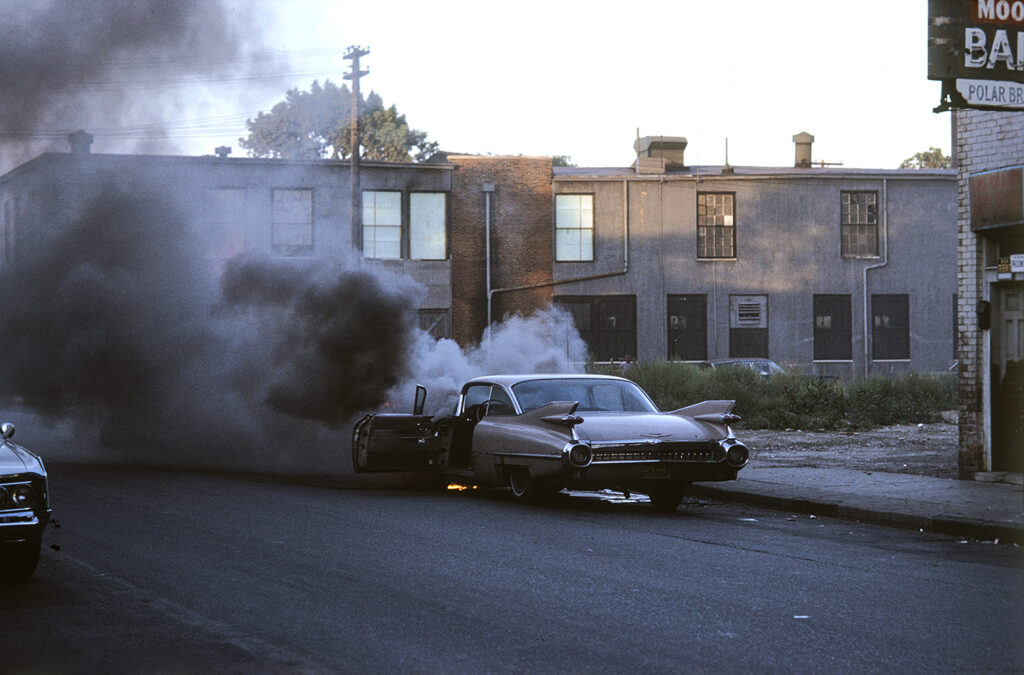
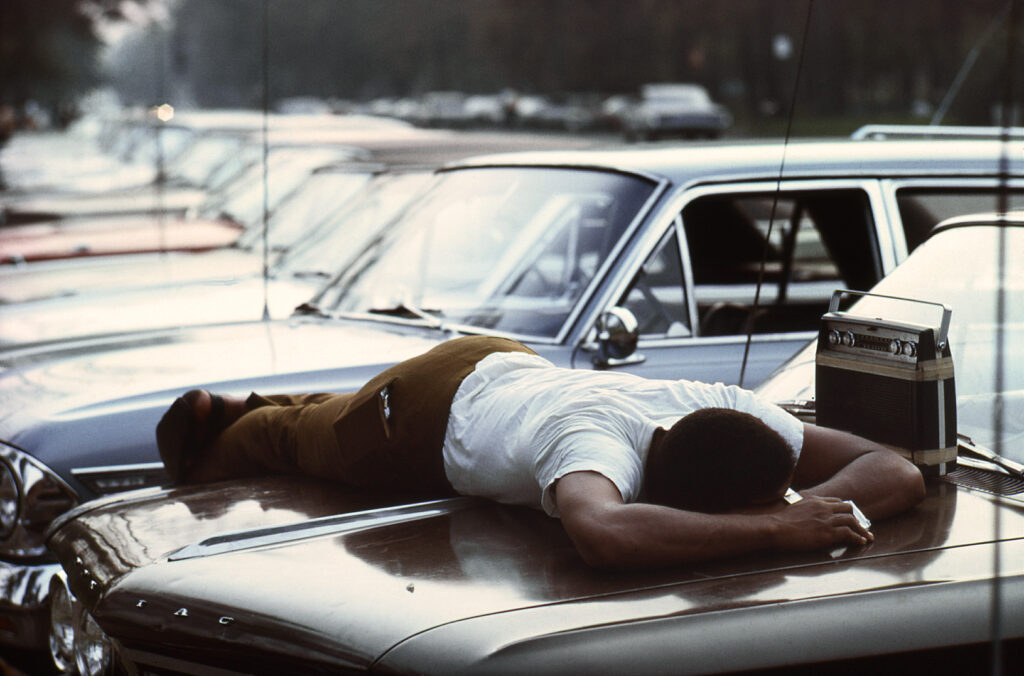
Above photographs by Alen MacWeeney Courtesy University College Cork © 2022 (UCC All Rights Reserved).
1967 Detroit Riot
During what is now known as “Long, hot summer of 1967“ the riot in Detroit, also known as the 12th Street Riot, was the bloodiest of the urban riots in the United States that summer. The confrontations between black residents and the police began in the early morning hours of Sunday 23 July, 1967 in a police raid of an unlicensed, after-hours bar, known as a blind pig. It escalated into one of the deadliest and most destructive social insurgences in American history, lasting five days and surpassing the scale of Detroit’s 1943 race riot.
In the first half of the 20th century Detroit was a thriving city with its main industry: the automotive. Henry Ford founded the Ford Motor Company in 1903 and by 1940 Ford was one of the largest private employers of African Americans in the United States. As production was decentralised and increasingly more automated during the 1960s and 1970s, tens of thousands of workers lost their jobs and manufacturing plants moved away from the city or even overseas. Racial tensions and segregation fueled social divisions within the city and the 1967 riot was a significant event that increased white flight to the suburbs and subsequently decreased the tax base in the city.
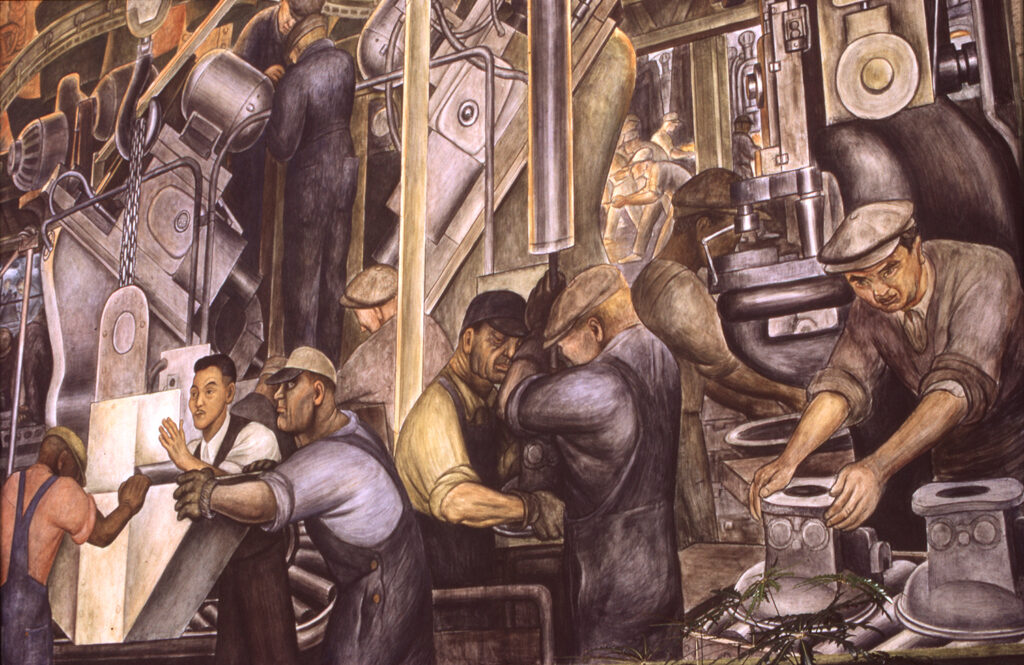
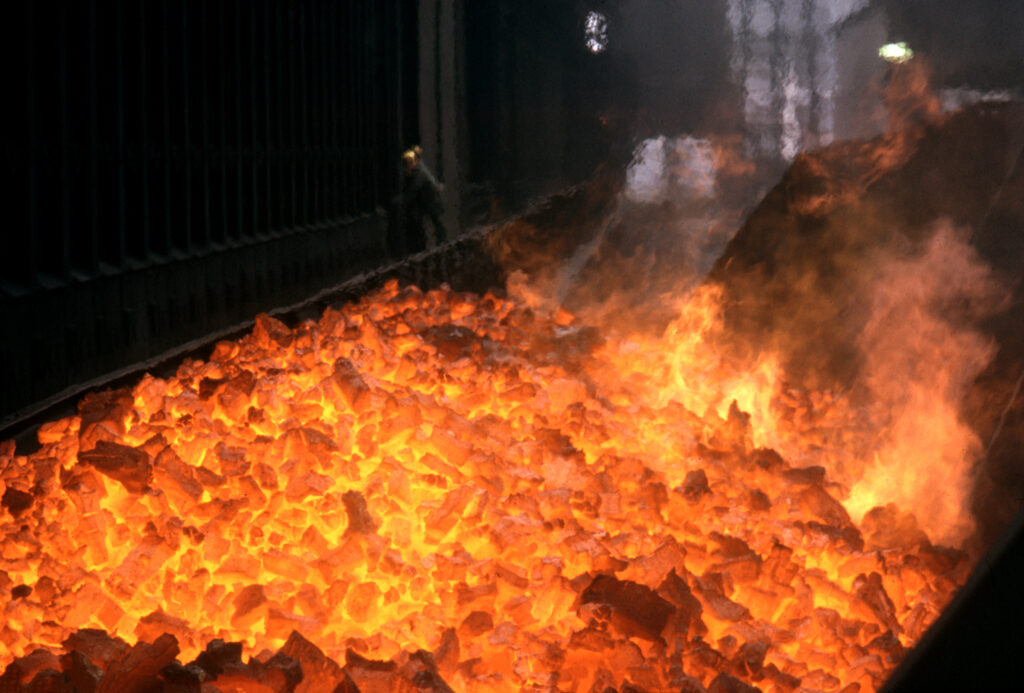

Above photographs by Alen MacWeeney Courtesy University College Cork © 2022 (UCC All Rights Reserved).
Alen MacWeeney in Detroit
Alen MacWeeney photographed in Detroit one year after the riot took place. He was on assignment for the magazine Saturday Evening Post, which has been around for 200 years “reflecting the distinctive characteristics and values that define the American way.” Racial unease still permeated the city when MacWeeney set out to capture it. Few images focus on disrepair and destitute but rather on the lives being lived despite a rapidly diminishing economy and a lack of job security. MacWeeney was an outsider to this community and many of the photographs were in fact taken from a driving car—a fitting way to observe the city once dubbed “Motor City.” The resulting pictures feel fleeting and layered at once, describing a mediated but authentic experience about an extremely complex place.
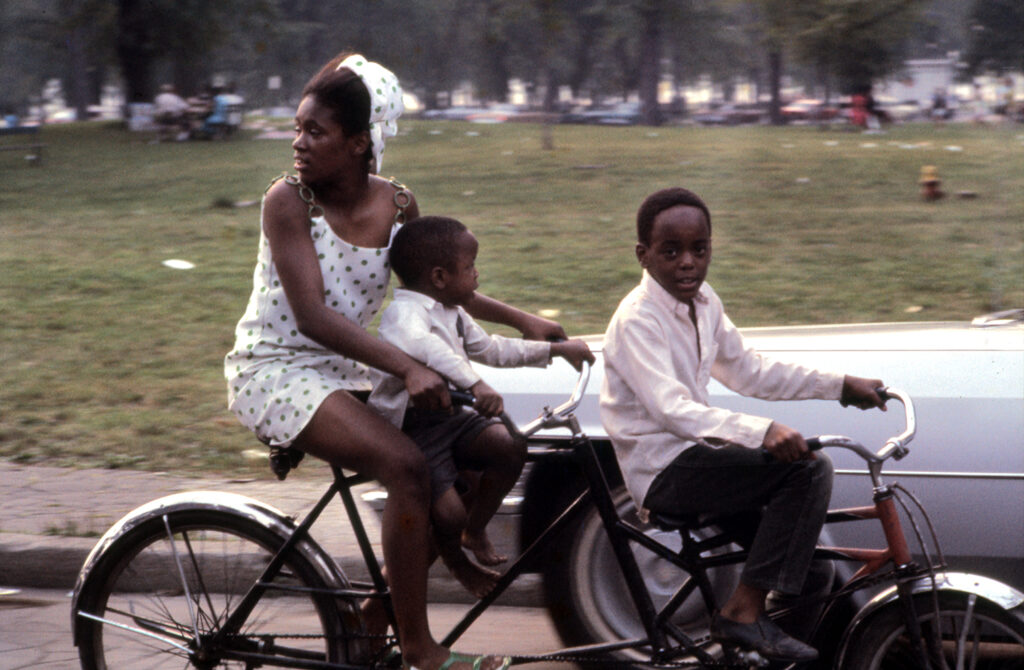
Above photograph by Alen MacWeeney Courtesy University College Cork © 2022 (UCC All Rights Reserved).
Black History Month in Cork City
Nigerian-born Zephrynus Okechi Ikeh established Black History Month Ireland in 2010. Celebrations were held in Cork, where Ikeh lived at the time. He said: “Before this, around 2008, I started researching about Africans’ contributions and participation in Irish cultural development, hence the Black History Month in Ireland.” UCC’s History Department helped to organise events and the Cork City Council supplied funding. A talk on the travels and works of social reformer Fredrick Douglass—who met with Daniel O’Connell of Ireland’s Catholic Emancipation movement in 1845—took place at University College Cork, alongside lectures on African American Slave Trade Emancipation.
During the following years events were organised in Dublin, Cork, and Waterford and Black History Month is now celebrated all over Ireland during the month of October.
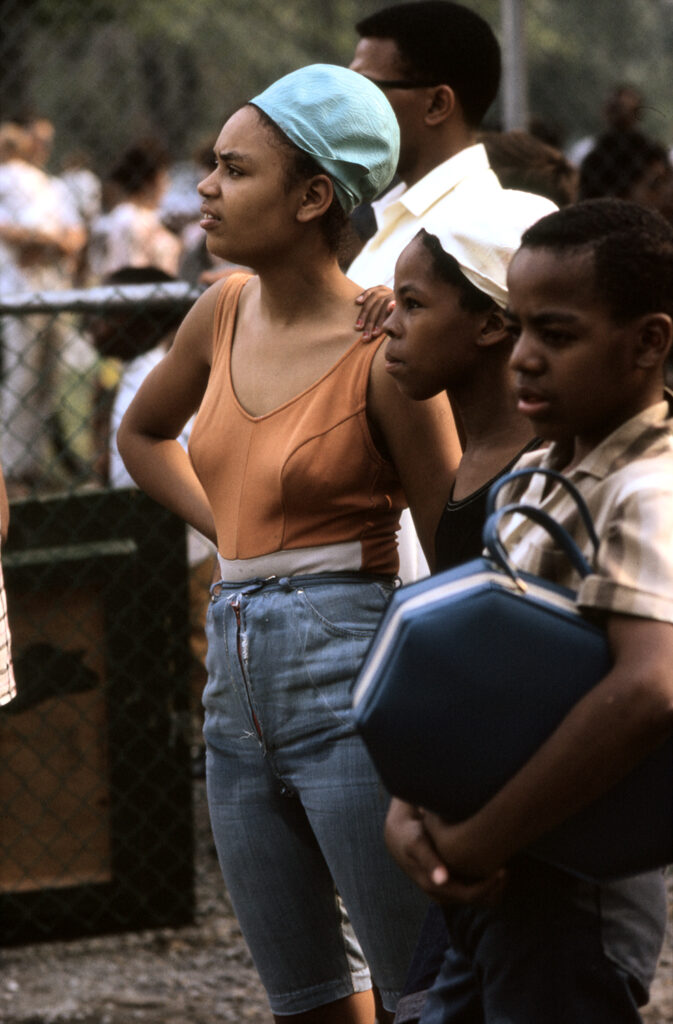
Above photograph by Alen MacWeeney Courtesy University College Cork © 2022 (UCC All Rights Reserved).
